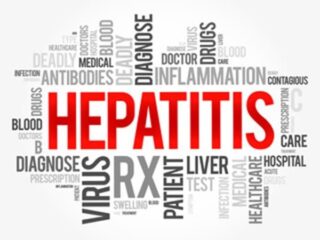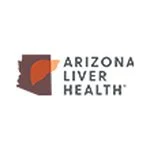
Liver health is essential to the function of the human body. It performs over 500 functions to keep the body healthy. A few examples are flushing out toxins, processing food, and maintaining healthy blood sugar levels. Hepatitis is one of the most common conditions that can permanently damage the liver without proper treatment. Learning more about hepatitis and what you need to know to take care of your liver are the most important steps you can take for a healthier future.
What is Hepatitis?
The definition of hepatitis means liver inflammation and is commonly the result of a contagious viral infection. Some types of hepatitis are non-viral, meaning one person cannot pass it to another. For example, autoimmune hepatitis typically has a genetic origin, and alcoholic hepatitis develops from excessive drinking. An individual can also contract the types of hepatitis spread by consuming contaminated food and drinks and mixing their bodily fluids with an infected person. There are six main types of hepatitis, but A, B, and C (Hep A, Hep B, Hep C) are the three most prevalent.

Symptoms of hepatitis vary from mild to severe and can be acute (lasting less than six months) or chronic (lasting more than six months). Treatments are available for every type of hepatitis. However, types A and C are the only curable ones now. As far as vaccines, both A and B have vaccines available. It’s safe to vaccinate against Hep A starting at one year old, while Hep B vaccination series can start sooner in infants.
Keeping the liver healthy with hepatitis is critical. Now, let’s talk about some ways to help!
A Balanced Diet and Hydration
Maintaining a balanced diet starts by reducing refined carbs such as white bread and processed sweets. Instead, try incorporating whole grains, fruits, and vegetables. It would be best if you also were mindful of the types of fats consumed. Consider eating modest quantities of meat and dairy. Additionally, try incorporating more monounsaturated fats commonly found in seeds, nuts, and fish.

Furthermore, drinking enough water for proper hydration is essential to help flush the liver. Not to be a Debbie downer, but depending on the type of hepatitis, your doctor may recommend cutting out alcohol completely. The reason is that alcohol damages the liver, so limiting your intake is essential for the liver to keep functioning correctly. The good news for coffee lovers is that coffee is a beverage known to promote liver health. So, brew, French press, or pour your favorite java over ice for up to three servings a day!
Healthy Lifestyle
In addition to eating a balanced diet, you can further promote your liver health and prevent liver disease by:
- Exercising regularly
- Maintaining a healthy weight
- Staying physically active
Whether it’s weightlifting, swimming, or even a walk in the neighborhood, exercise can also turn triglycerides into fuel, reducing liver fat. A diagnosis of hepatitis doesn’t have to lead to liver damage. When you know how to keep your liver healthy and take the necessary steps, you have the power to live a healthier future.

Check out this link to learn more about our liver studies and how participating in research can help you take the first steps on your journey to health. Our caring site staff can also answer any questions by contacting us at (480) 470-4000.
Sources:



